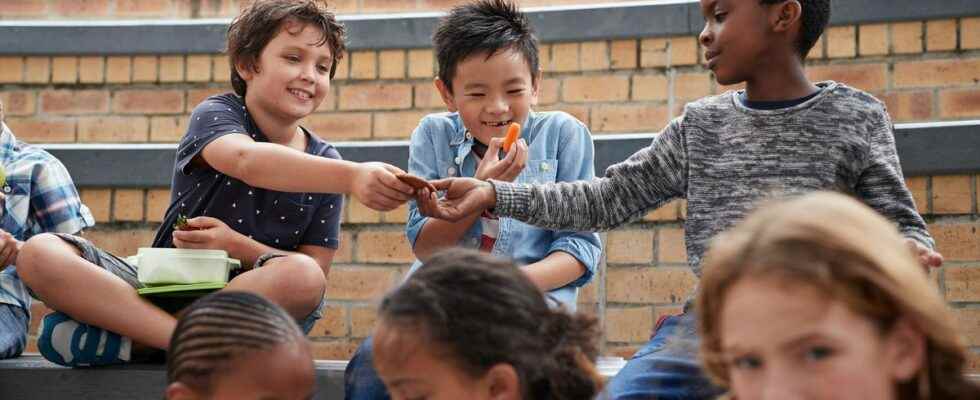Posted ,
Reading 2 mins.
Kindness: it has often been praised, sometimes set aside. According to a study published in the journal Frontiers in Psychology, it would have real effects on mental health.
Being nice would lead to a healthy brain. This has been shown by researchers and clinicians from the Center for Brain Health from the University of Texas (USA).
They have set up an online kindness training program for children. The goal? Observing the social behaviors of preschoolers and the resilience (ability to overcome traumatic circumstances) of their parents during times of stress, and consequently during the COVID-19 pandemic. The result is notable: parents are more resilient and children more empathetic after kindness training.
Get Nice With Moozie
American researchers used a program called “Kind Minds with Moozie”, inspired by Children’s Kindness Network by Ted Drier. A total of 38 parents participated with their children, aged 3 to 5 years old.
“Moozy” is a digital cow that offers creative exercises for children to do with their parents, the goal being to teach them to be nice. The program includes four specific themes: kindness to others, to oneself, to animals and to the planet. Before starting the program, the researchers asked parents to rate their own resilience and their children’s level of empathy.
One of the study’s authors, Maria Johnson, told Frontiers in Psychology : “Our goal is to encourage parents to engage in hands-on, brain-healthy interactions with their children to help them better understand each other, especially in times of stress”.
The impact on the cognitive function of the brain
Being kind to each other would help take care of one’s mental health. Johnson confirmed it: “Research shows that kindness is a powerful potentiator of dynamic social engagement, which in turn is an essential component of overall brain health”.
The researchers found that resilience and empathy involve cognitive skills such as the ability to react to stressors or to adapt. Kindness therefore has an important influence on the cognitive function of the brain.
Although progress has been observed in children, the COVID-19 crisis has had a considerable impact on their mental health. The researchers actually found that the level of empathy of those concerned remained below average. They saw an explanation for this: COVID-19 safety measures, which would have limited children’s social and emotional learning.
Consult a therapist online
“Don’t underestimate the power of kindness”
Researchers support the idea that practicing kindness can be a useful tool to help parents become more resilient, particularly in times of crisis, such as COVID-19. Resilience is therefore a real factor in improving mental, physical and cerebral health.
Teaching kindness to your children at home helps create a healthy environment and contributes to the healthy development of their brains. Julie Fratantoni, one of the authors of the study concluded: “Don’t underestimate the power of kindness, because it can ultimately change and shape brain health”.
